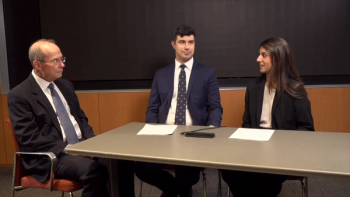
COVID-19: Ophthalmic ASC Reopening Checklist released
Guidance from the American Academy of Ophthalmology, the American Society of Cataract and Refractive Surgery, and the Outpatient Ophthalmic Surgery Society for reopening ambulatory surgery centers.
The
The organizations issued the list for reopening ambulatory surgery centers.
A guidance issued in March limited practices to emergencies and emergent care.
For nearly two months, the nation has focused on social distancing and shelter-in-place rules in an effort to reduce the spread of COVID-19.
“We are flattening the curve. It is now time to consider the process of cautiously reopening ophthalmology care and serving the growing healthcare needs of patients who deferred needed care and are at increased risk of experiencing a negative clinical outcome,” the organizations said in a statement.
While the ophthalmic community closed routine practice nationally, the groups said practice will open locally.
The decision to reopen more normal practice will be based on local and regional conditions, on public health authorities interpreting local patterns of disease, on testing availability, on institutional policies and ultimately on individual ophthalmologists.
To support the safe reopening of care, the AAO, the ASCRS, and the OOSS, developed a checklist that details specifically how to approach and manage some of the key decisions in reopening more normal practice in the COVID-19 era.
According to the groups, with respect to COVID-19 testing, facilities should adhere to state and local guidance. The statement noted that for cases at low risk for aerosolizing bodily fluids and performed under monitored anesthesia/conscious sedation, such as cataract surgery, routine preoperative RT-PCR testing should not be mandatory.
However, this may be considered for patients with risk factors on an individual basis. The groups also offered thanks to the Ambulatory Surgery Center Association (ASCA) for its contribution to the development of the checklist.
“This virus is still with us,” the groups concluded in the statement. “We simply must use our accumulated experience and scientific information and adapt to it. We must be thoughtful and careful-for our patients, our staff and colleagues, and for ourselves and our families.”
Newsletter
Don’t miss out—get Ophthalmology Times updates on the latest clinical advancements and expert interviews, straight to your inbox.





























